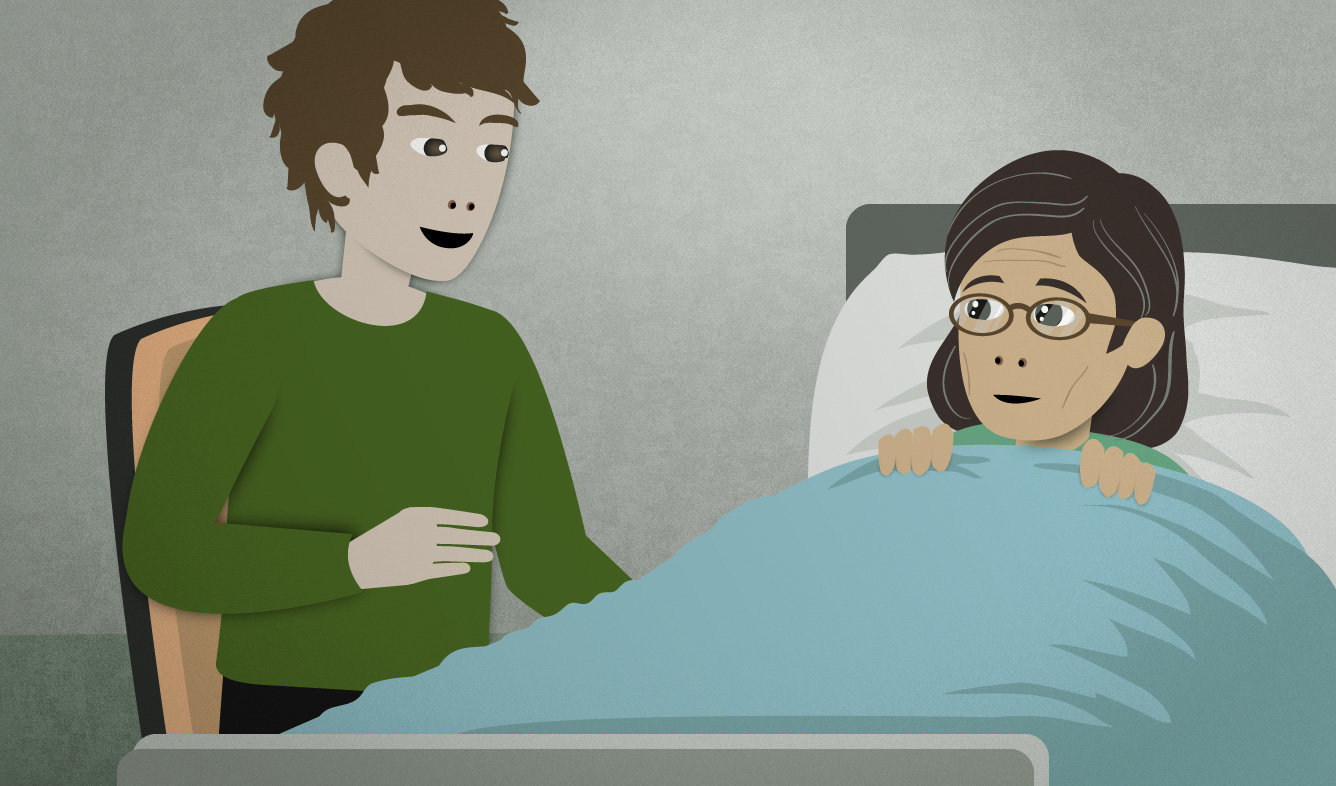“I just thought I'd check in on you and see how you're doing.”
Your wife's aunt is in the hospital. You stop by the hospital after work to see her. You say this to explain why you came.
I just thought I'd check in on you and see how you're doing.
Want Video and Sound? Follow us on YouTube

I just thought I'd (do something)
Use this phrase to explain what you're doing, and make it sound like a sudden decision rather than something which was planned out in advance.
I just thought I'd call and see if you wanted to have lunch some time this week.
You could also say it this way:
I wanted to call and ask if you wanted to have lunch some time this week.
But "I wanted to ___" doesn't tell how long you wanted to do something. It could mean any of these:
- You've wanted to do it for a long time.
- You just decided that you want to do it.
- You wanted to do it in the past, but now you don't.
"I just thought I'd ___" expresses the idea of deciding quickly and without thinking too carefully about something. Here are some other examples:
No, there's no special occasion; I just thought I'd clean up a little bit.
Hey. Are you OK? I just thought I'd see if you needed any help.
how (someone) is doing
In English, you can say
How are you?
How is she?
or
How are you doing?
How are they doing?
...for various situations.
It something important or unfortunate happens, it’s a little more common to use “How is (someone) doing?” This might be because “doing” suggests that the situation is temporary and that it might change. Also, we say “How are you?” or “How is (someone)?” so often that the question not as meaningful. Many people answer “good” or “fine” even if it’s not true.
So if your friend Ruthie got into a bad car accident, you can call her family and ask:
I heard about Ruthie-- how is she doing?
check in on (someone)
To "check in on" someone means to visit, call, or write to them to find out how they're doing:
When someone new joins the team, I like to check in on them at least once a day.
Here are some situations in which you can "check in on" people:
- check in on your children who have been playing without an adult watching them
- check in on your employees to make sure that they're doing a good job
- check in on someone who's sick to see if they're getting better or worse
